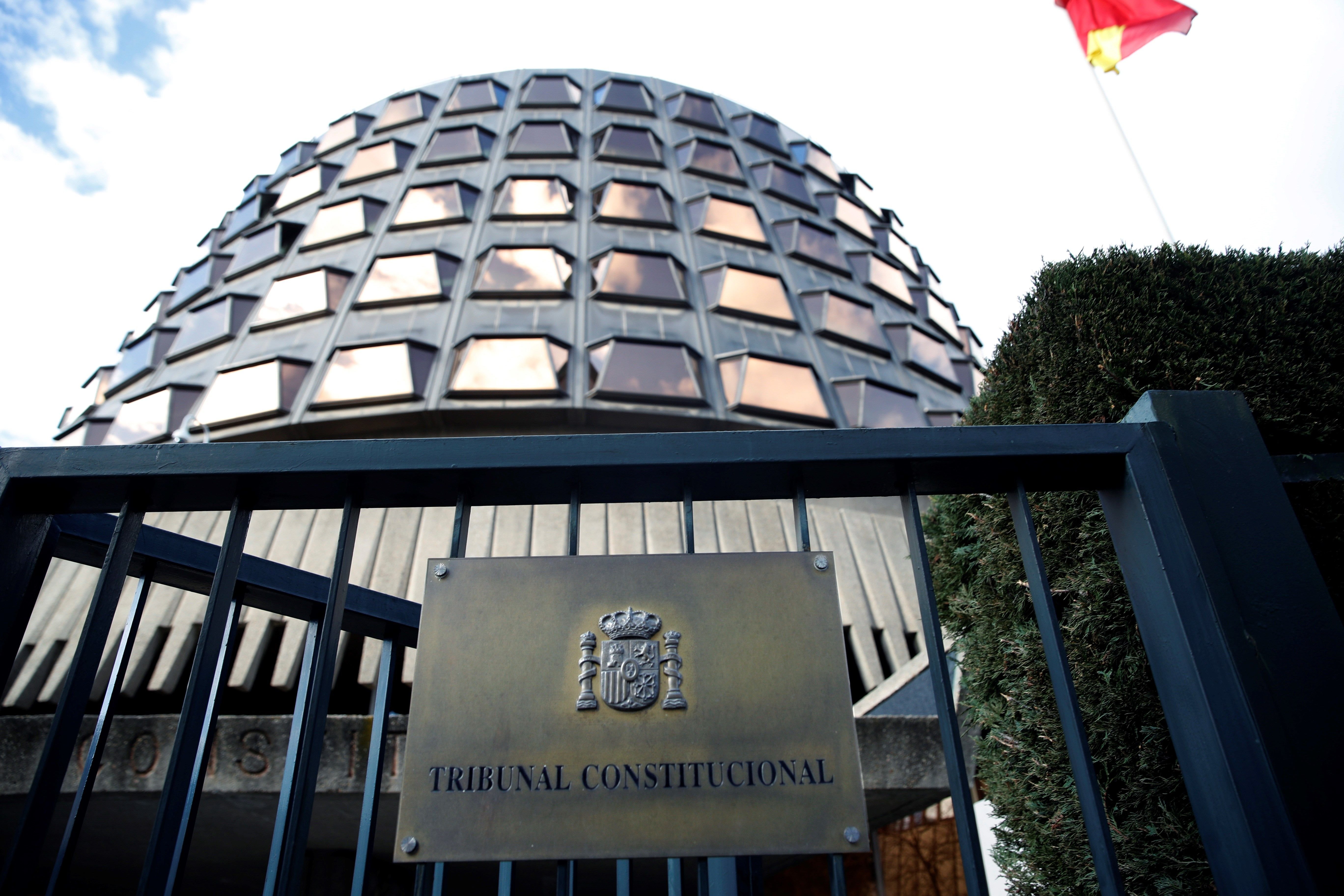To go down with guns blazing. Spain's Constitutional Court already has four new justices named for its partial renewal, as agreed between the Spanish government and the opposition PP. But before proceeding to install the replacement parts, the high court has dealt a final blow to the Pedro Sánchez executive. Meeting this Wednesday, the high court has declared that Spain's second state of alarm for coronavirus, decreed in October last year for a period of six months, was unconstitutional. As with the court's similar ruling on the first Covid state of alarm, in July, the vote was split: six votes for and four against. As well, a few weeks ago the court declared that the supposed "closure" of Congress during the first wave was also constitutionally out of order.
Once again, a tight majority of the full Constitutional Court has ended up accepting the appeal lodged by far-right Vox in opposition to the government's decree. There are two elements that were key in its decision. First, the six-month extension of this special constitutional status during which there were no parliamentary checks on prime minister Pedro Sánchez. Second, the system of co-governance adopted for this decree of state of alarm, which delegated the autonomous communities as competent authorities and allowed them to declare curfews and other measures that meant restrictions on freedoms.
On the one hand, the sentence, drafted by judge Antonio Nárvaez, states that "what deserves constitutional reprehension is not the duration of the extension in itself, but the unreasonable or unfounded nature of the decision." A slim majority of the court believes the six months duration was determined “without even any consistency in the reasons the government used" to request the extension. In the same way, the resolution argues that the state of alarm extension was authorized when the measures to be taken to deal with the pandemic had not even been decided - measures that were left in the hands of the autonomous communities.
With regard to the appointment of Spain's autonomous communities as competent delegated authorities, the judges consider that this goes against the distribution of powers established by the very law that regulates the state of alarm. In addition, it adds, the designation was made "on a permanent basis without any reservation of the effective supervision of what the delegated authorities could enact in the respective territorial areas."
Four dissenting opinions were given by the president of the court, Juan José González Rivas, and the judges José Antonio Xiol, Cándido Conde-Pumpido and María Luisa Balaguer.
Imminent renewal
This is in all probability the last decision by the Constitutional Court before it is partially renewed, as agreed between the Spanish government and the Popular Party. With the mandates of one third of its members expired, the court will see the entry of four new judges. This partial renewal will leave the majority where it was: in conservative hands. The new members will be the president of the criminal chamber of the National Audience, Concepción Espejel; the current Spanish parliamentary lawyer and former member of the CGPJ, Enrique Arnaldo Alcubilla; a judge of the High Court of Andalusia, Immaculate Montalbán, and a National Audience judge, Juan Ramon Sáez.
Two are conservatives and two progressives, the same balance as for the judges who are leaving. Espejel and Arnaldo are considered close to the PP, while Montalbán is in the orbit of the Socialists (PSOE) and Sáez close to the circles of Podemos (formerly of Izquierda Unida). While Sáez voted to acquit Mossos police chief Josep Lluís Trapero, tried for sedition over the independence process, Espejel cast a minority vote in favour of convicting the Catalan police leader. The conservatives Juan José González Rivas and Andrés Ollero and the progressives Encarna Roca and Fernando Valdés leave the constitutional organ.
Executive "respects" but "does not share" the decision
Spanish justice minister Pilar Llop has commented that the government "respects, abides by, but does not share the ruling of the Constitutional Court". Llop argued that the executive presided over by Pedro Sánchez "acted in function of necessity and the circumstances that occurred at that time" and that the actions were taken "obeying the constitutional parameters". In this regard, the head of the justice ministry stated that "it is clear that action was taken at all times to save the lives and health of citizens."

